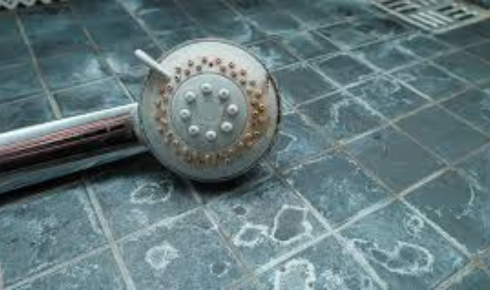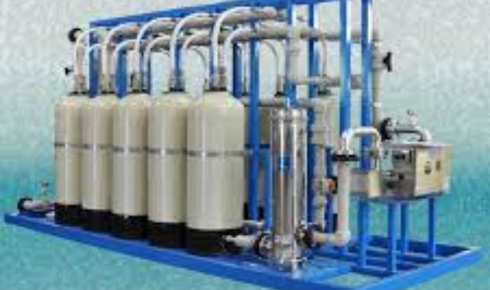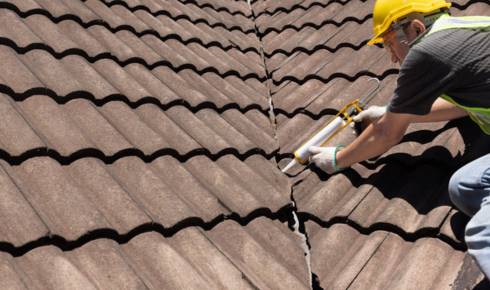You know that feeling when your soap just won’t lather properly, your dishes come out streaked, or your hair feels unusually dry after a shower? Chances are, your home is dealing with hard water. Hard water is one of those everyday nuisances that we often overlook, but it quietly affects plumbing, appliances, and even skin and hair health. To really tackle the issue, it helps to understand the causes of hard water and why it behaves the way it does.
I still remember moving into my first apartment and noticing a strange residue on my faucets and showerhead. At first, I blamed cleaning habits or water splashes. But after some investigation, I realized that hard water was the culprit. The scale buildup, dry skin, and stubborn soap scum weren’t random—they were the direct result of minerals present in the water itself. Learning about the causes of hard water was eye-opening and helped me see why so many homes in certain regions face similar challenges.
What Is Hard Water?
Hard water is water that contains a high concentration of minerals, primarily calcium and magnesium ions. These minerals aren’t harmful in small amounts, and in fact, they can be beneficial to health when ingested. But when it comes to household use, they can be problematic. The minerals react with soap to form a sticky residue known as soap scum, and over time, they accumulate inside pipes, water heaters, and appliances. This buildup is not just unsightly—it can reduce efficiency, increase energy bills, and even shorten the lifespan of your plumbing.
Understanding causes of hard water begins with geology. Water picks up minerals as it moves through soil and rock, particularly limestone and chalk. The longer water travels through mineral-rich layers, the harder it tends to be. This is why hard water is more prevalent in certain regions, especially areas with abundant limestone or chalk deposits. Municipal water systems often treat water for contaminants, but mineral content is usually left untouched, which is why homes connected to city water supplies can still have hard water issues.
Signs You Have Hard Water
Recognizing hard water is easier than you might think. Some common indicators include:
- White or chalky buildup on faucets and showerheads
- Soap that doesn’t lather well
- Spots or streaks on glassware and dishes after washing
- Dry or itchy skin after showers
- Hair that feels dull or lifeless
In some cases, homeowners notice their water heater working harder than usual or appliances needing repairs more frequently. These are subtle but important signs that mineral buildup is affecting household systems.
The Impact of Hard Water on Your Home
While hard water isn’t generally a health hazard, its impact on household systems and daily life can be frustrating. Over time, mineral deposits inside pipes can restrict water flow and reduce efficiency. Water heaters often develop scale buildup on heating elements, requiring more energy to heat water and shortening the appliance’s lifespan. Dishwashers, washing machines, and coffee makers also accumulate mineral residue, which can affect performance and taste.
Hard water doesn’t stop at appliances—it affects personal care, too. Soap reacts with the calcium and magnesium in water, creating scum rather than lather. This can leave skin feeling dry and hair looking dull. Even laundry can suffer, with clothes appearing stiff or fading faster than they would with soft water. Understanding the widespread consequences makes addressing hard water more than just an aesthetic choice—it’s an investment in efficiency, longevity, and comfort.
Exploring the Causes
Now that we know what hard water is and how it affects our homes, it’s important to dig deeper into the causes of hard water. As mentioned earlier, the primary factors are geological. Water naturally dissolves calcium and magnesium from soil and rock as it travels underground. Regions with limestone or chalk-rich terrain are particularly prone to hard water.
Another contributing factor is water treatment practices. While municipal systems remove harmful contaminants like bacteria, chlorine, and sediments, they typically do not remove dissolved minerals. Well water, which is sourced directly from underground aquifers, often contains even higher concentrations of calcium and magnesium because it hasn’t been filtered or treated. Even minor changes in seasonal rainfall or groundwater levels can affect mineral concentration, making hardness levels fluctuate slightly over time.
Common Hard Water Treatments
The good news is that there are several ways to address hard water and reduce its impact on your home. Hard water treatments range from simple at-the-tap solutions to whole-house systems designed to protect plumbing and appliances.
- Water Softeners: The most common solution, water softeners use ion-exchange technology to replace calcium and magnesium ions with sodium or potassium ions. This dramatically reduces mineral content and prevents scale buildup.
- Reverse Osmosis Systems: These are typically used for drinking water and can remove minerals and contaminants, producing water that tastes fresh and is gentle on skin and hair.
- Chelation or Sequestration: Some point-of-use treatments add chemicals that bind with minerals, preventing them from forming deposits. These systems don’t remove minerals but reduce their damaging effects.
- Magnetic or Electronic Devices: These treatments claim to reduce scale buildup by altering the properties of minerals as water flows through pipes. While evidence of effectiveness is mixed, some homeowners report reduced scale over time.
Selecting the right solution depends on water hardness levels, household size, and budget. Professional water testing is highly recommended before making a decision.
DIY Measures for Hard Water
Even without major installations, there are simple measures you can take to minimize hard water problems. Vinegar is a classic cleaning agent for removing scale from faucets, showerheads, and appliances. Regular descaling can prevent buildup and maintain efficiency. Using liquid detergents instead of powder detergents for laundry often helps, as they react less with minerals in the water.
Additionally, applying moisturizers after showers or using specialized shampoos can help counteract the drying effects on skin and hair. While these measures don’t solve the root problem, they help manage daily inconveniences until a more permanent treatment can be implemented.
Long-Term Considerations
Hard water is a persistent issue, but understanding the hard water treatments available can make a substantial difference. Whole-house softening systems, when installed correctly, protect plumbing, appliances, and daily routines for years. Drinking water systems like reverse osmosis or point-of-use filters ensure that you have soft, clean water at the tap.
Maintenance is key. Regularly checking and servicing water softeners or filtration systems ensures they function effectively. Even simple monitoring of soap scum, appliance performance, or skin and hair quality can provide early warnings that your system needs attention.
Final Thoughts
Hard water may not be the most glamorous home issue, but its effects are widespread—from appliances to skin, laundry, and energy bills. By understanding the causes of hard water, recognizing its signs, and implementing appropriate hard water treatments, homeowners can protect their investments and enjoy water that is gentle, clean, and efficient.




